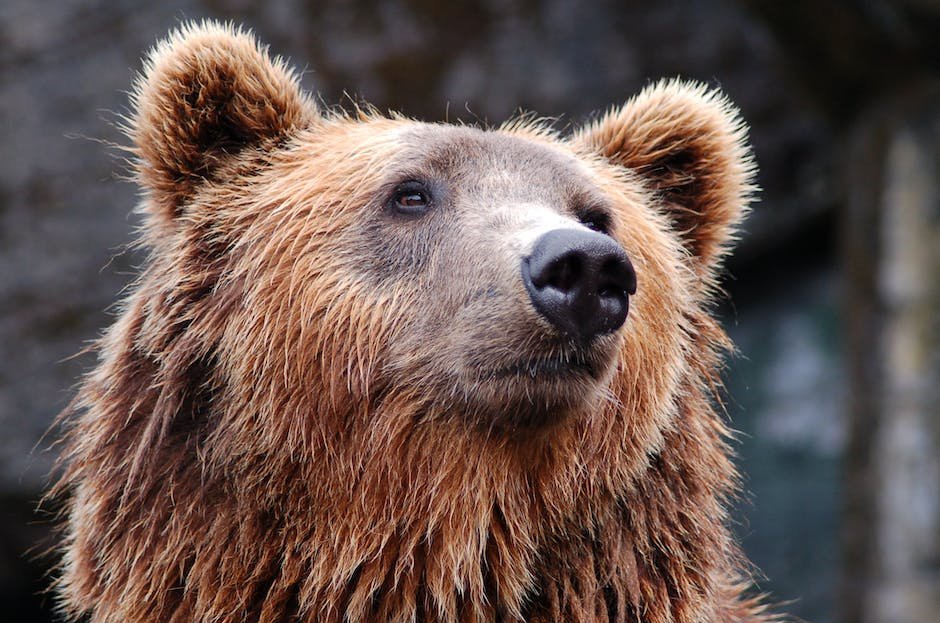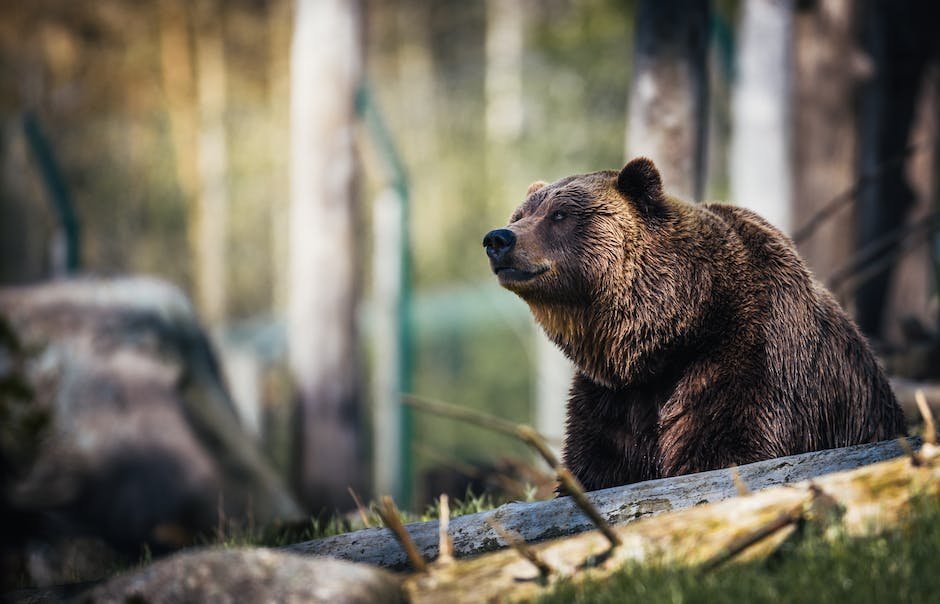Contents
The cave bear was a species of bear that lived in Europe and Asia during the Pleistocene epoch. The cave bear ranged in size from 5 feet 11 inches to 11 feet 6 inches and weighed between 660 and 3,300 pounds. The cave bear had a large, elongated skull and a short, stocky body. The cave bear was the largest member of the bear family and the largest land mammal of its time. The cave bear was extinct by the end of the Pleistocene epoch.
The cave bear (Ursus spelaeus) was a species of bear that lived in Europe during the Pleistocene period and became extinct about 24,000 years ago. Cave bears were some of the largest bears to ever exist, with some males reaching lengths of up to 3.5 meters (11.5 feet) and weights of up to 1,400 kilograms (3,100 pounds).
Is a cave bear bigger than a grizzly bear?
Cave bears were much larger than grizzly bears, weighing up to 2,200 pounds. They were also taller, averaging 4 to 5 feet at the shoulder, while most grizzly bears are only 3 to 3.5 feet tall at the shoulder.
The cave bear was a species of bear that lived in Europe and Asia during the Pleistocene epoch. The largest numbers of cave bear remains have been found in Austria, Switzerland, northern Italy, northern Spain, southern France, and Romania, roughly corresponding with the Pyrenees, Alps, and Carpathians.
Cave bears were typically larger than any other known bear species, with some individuals exceeding 3 metres (9.8 ft) in length and weighing up to 600 kilograms (1,300 lb). Their name refers to the numerous cave sites where their remains have been found, such as the Drachenloch in Switzerland and the Altamira and El Castillo caves in Spain.
The cave bear was a herbivore, with a diet consisting mainly of roots, berries, and other plant matter. It is thought that the cave bear went into hibernation during the winter months, as many of the cave sites where their remains have been found also contain evidence of winter occupation by other species, such as Neanderthals.
The cave bear was a formidable predator, and was probably responsible for the extinction of the cave hyena in Europe. It is also thought that the cave bear may have been responsible for the extinction of the woolly
What bear lives in caves
The cave bear was a large, furry creature that lived in caves. They were a species of bear that is now extinct. Cave bears were notable for their habit of living in caves, where their remains are often preserved.
Cave bears were some of the largest bears to ever exist. They were the size of modern Kodiak and polar bears and were members of the bear family. Their closest living relatives are the grizzly bear and polar bear, though they were very similar in size and appearance to the Kodiak bear.
What killed the cave bear?
The cave bear was a large, plant-eating mammal that lived during the last glacial maximum. The bear weighed up to 1000 kilograms and went extinct 24,000 years ago when temperatures plummeted.
Cave bears were ancient bears that used to hide and hibernate in caves. They were actually two distinct species: Ursus spelaeus and Ursus deningeri. Both species are now extinct.
Do cave bears eat meat?
It is believed that cave bears were mostly herbivorous, meaning that they primarily fed on plants and roots. However, there is evidence to suggest that they did occasionally eat meat. Potential sources of meat for these bears included fish, insects, and small mammals. It is important to note that cave bears did not actively hunt and stalk large animals or humans – they likely only ate meat if they happened to come across it while they were searching for other food.
Kodiak bears are the largest bears in the world. They weigh up to 1,500 pounds. Females are about 20% smaller and 30% lighter than males.
How fast could a cave bear run
I find this topic very interesting! I had no idea that the bear could run so fast. I certainly wouldn’t want to be chased by one! I imagine it must have been quite the sight to see a bear running down some massive prey like a mammoth. Fascinating!
Brown bears are more closely related to polar bears than they are to cave bears. This is because they diverged from cave bears more than a million years ago. Cave bears were mostly herbivores, while brown bears are meat-eaters and are about 20 percent smaller than cave bears. They also have more delicate bones.
Are cave bears bigger than bears today?
Cave bears were thought to first appear in Europe around 400,000 years ago before going extinct around 24,000 years ago. They were much larger than the bears found living today, measuring up to 11 feet (3.5m) long.
Cave bears are enormous animals that are found primarily in the Northern region of Oros. They are so large that they cannot climb, but they can swim. Although they are intimidating animals, they can be tamed and make great pets. Just be sure that you have enough space to accommodate them!
What was the first bear on earth
The bears that we see today are quite different from their prehistoric cousins. The earliest bears were more like dogs, with heavy-set features and blunter teeth. Modern bears appeared in Eurasia around 5 million years ago, and they were quite small compared to some of the types that eventually developed. Nevertheless, they are still very impressive animals, and we can learn a lot about our own history by studying them.
The phylogeny of extant bear species is shown in a cladogram based on complete mitochondrial DNA sequences from Yu et al (2007). The giant panda, followed by the spectacled bear, are clearly the oldest species. The brown bear and the American black bear are more closely related to each other than either is to the giant panda, indicating that the giant panda is a more ancient species.
Chadwick’s reasoning is sound, but it’s important to remember that we don’t share all of our genes with any other species. So while it’s safe to assume that we have a lot in common with grizzly bears, there will always be some differences.
The cave lion (Panthera leo spelaea) was a large felid that lived in Eurasia during the Pleistocene epoch. The cave lion was closely related to the modern lion (Panthera leo), but not to other extinct felids, such as Dinofelis and Smilodon. At 15 meters high at the shoulders and at 4 meters in length, it was larger than modern lions of today and slightly bigger than modern tigers.
What was the lifespan of a cave bear
Our research shows that the average lifespan of cave bears was 19 years. However, data from other sources suggest that some bears lived for up to 30 or 32 years. We also found that the oldest known age for the Middle Pleistocene cave bear Ursus deningeri was 29 years.
Hunting large mammals for resources is something that Humans have been doing for a long time. It is believed that they hunted mammoths and other large mammals during the Pleistocene era. However, recent genetic research has shown that they may have also hunted large cave bears to extinction. This is something that should be taken into consideration when looking at the hunting habits of Humans.
Did cave lions eat cave bears
The analysis by Bocherens showed that cave lions occasionally ate bear cubs but not adults. Their favorite food, however, was reindeer which consumed massive quantities of lichen.
The brown bear is a species of bear that is found across Eurasia and North America. They are one of the most commonly found bear species and are known to inhabit a variety of habitats ranging from forests to mountains. Brown bears are typically solitary animals but can be found in small groups during the mating season. They are omnivorous animals and their diet consists of a variety of plant and animal matter. Brown bears are considered to be a threatened species due to habitat loss and hunting.
How tall was a giant cave bear
Cave bears were huge, with an overall body length of roughly 8’8″-11’6″ (27-35 m) and a giant upright standing height of 10′-11’6″ (305-35 m). They were well-adapted to their cold, dark environment, with thick fur and a large body mass that helped them survive the long, harsh winters. Cave bears were 一 of the many megafauna that lived during the Pleistocene epoch, and they died out during the Last Glacial Maximums about 24,000 years ago.
There are a lot of misconceptions about game meat, especially when it comes to bears. Many hunters shy away from eating bear meat because they believe it to be tough and unpleasant. However, most hunters who have eaten black and brown/grizzly bear meat say that it’s actually quite good – unless the animal has been feeding on fish. So if you’re ever in the situation where you have to choose between bear meat and fish meat, make sure to go for the bear!
Warp Up
Cave Bear Animal is a large bear that lived in caves during the Ice Age.
Cave bear animal is a big and strong animal. They are really fast and can climb really high. They are really good at running and are really good swimmers too.

0 Comments